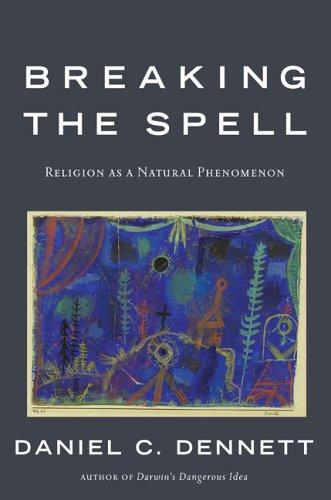Ashwin reviewed Breaking the spell by Daniel C. Dennett
Review of 'Breaking the spell' on 'Goodreads'
3 stars
In this book, Dennett tries to look at religion as a natural entity and attempts to examine all facets of it using the scientific method.
The spell that Dennett is trying to break here is that of religion and also of the oft-heard saying that religion can't be studied by science. The book is divided into 3 parts:
1. Opening Pandora's Box — Can religion be defined? How to define religion? Why should religion be studied as a natural entity? Can/should science study religion? Cui bono? Who benefits from religion?
2. The Evolution Of Religion — Why was religion born in nature? Why were Gods born? Why did folk religions domesticate into mainstream religions?
3. Religion Today — Is it religion that keeps society sane and moral? Is it religion that gives meaning to life?
Dennett is good at analogies. He draws comparisons to music, money, language, sex, sports, literature …
In this book, Dennett tries to look at religion as a natural entity and attempts to examine all facets of it using the scientific method.
The spell that Dennett is trying to break here is that of religion and also of the oft-heard saying that religion can't be studied by science. The book is divided into 3 parts:
1. Opening Pandora's Box — Can religion be defined? How to define religion? Why should religion be studied as a natural entity? Can/should science study religion? Cui bono? Who benefits from religion?
2. The Evolution Of Religion — Why was religion born in nature? Why were Gods born? Why did folk religions domesticate into mainstream religions?
3. Religion Today — Is it religion that keeps society sane and moral? Is it religion that gives meaning to life?
Dennett is good at analogies. He draws comparisons to music, money, language, sex, sports, literature and other such entities related to humans in his explanation of religion. He draws on a huge compendium of writing on evolution, memes and religion, with detailed endnotes and countless quotes. This was the first time I was reading a work that put religion into a clean, non-emotional scientific analysis. Dennett succeeds in asking the right questions, which as he confesses is harder than answering them. Some of the biggest influences in his study of religion are Charles Darwin's The Origin Of Species and Richard Dawkins' The Selfish Gene. The former is the forerunner to the discovery of the gene (an unit of biological evolution) while the latter introduces the meme (an unit of cultural evolution). I knew about the meme before, but Dennett applies it to explain the evolution of religion. It was here that I felt that the idea of the meme was so revolutionary that I've now resolved to read Dawkins' book.
The book is primarily aimed at those who are religious, though it gives loads of ammo for the non-believer. The book introduced so many things that I wasn't even aware of about evolution, cultures and the scientific method. I've got a higher respect for Darwin now. On the downside, the book is very verbose. I couldn't help but feel that Dennett could've easily removed loads of stuff and made the flow tighter. The book is also quite big at 448 pages which includes 4 appendices (which I conveniently skipped). In fact, the book introduced so many lines of debate and thought that I need to re-read it again to get a fuller understanding. I will reserve my final judgement about this book until then.

